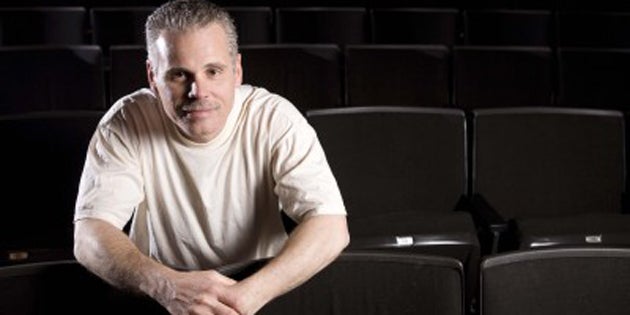There’s no question that music feeds the soul – and, whether it’s home-cooking or five-star dining, the richest flavors and freshest tastes always come from locally grown ingredients.
“There’s nothing as pure as what’s homegrown in the backyard,” says Rob Taylor, music professor and director of choral activities, who likens pop music to something off an Applebee’s menu (generic, artificially enhanced, “contrived and corporate”); folk music to that age-old recipe that’s been handed down from generation to generation, neighbor to neighbor, for so long it’s part of the local cuisine; and classical music to the technically complex culinary cookery that formally schooled chefs are trained to master.
ARTICLE: Go see “A Celtic Christmas,” directed by Robert Taylor.
“But the best chefs use the local recipes and local foods as inspiration and then give them a little creative twist using their classical techniques,” says Taylor, who is also the president and founding director of the Taylor Music Group, a performance- and education-based organization focusing primarily on Celtic and classical music. “That’s exactly what we’re trying to do: connect the art of the people (folk music) with the ‘high art’ that’s associated with classical music or ‘art music.’ That’s our thrust: figuring out ways to make Celtic and classical music coexist.”
PURCHASE: The Taylor Music Group’s Christmas Album makes a great gift.
The group – which includes the Taylor Festival Choir, the College’s resident chamber choir made up of 28 singers from all over the country; and Na Fidleiri, the College’s resident ensemble of 20 young violinists led by Mary Taylor (Taylor’s wife) and focusing primarily on Celtic fiddle music – has done this by performing together every year in “Celtic Christmas” and St. Patrick’s Day concerts, and by hosting the Celtic Arts Festival in Piccolo Spoleto.
“Anybody can learn how these things come together,” says Taylor, explaining that the annual Piccolo series features both performances and lessons so people can hear a world-famous musician play the Irish tin whistle and take a lesson from her. “The idea is always to promote music – and in order to do that, you have to close the gap between the performer and the audience.”
Of course, you don’t have to perfect a Celtic tune on the tin whistle to appreciate music. All you have to do is listen.
“Every time we perform, I know we’re changing lives – opening someone’s eyes and ears,” says Taylor, who also serves as the director of the College of Charleston Concert Choir (itself lauded as one of the nation’s finest collegiate choirs) and its Madrigal Singers, the Charleston Symphony Orchestra Chorus and the CSO Chamber Singers. Because it is named for and specifically honors his father, however, Taylor Festival Choir holds a special place in his heart.
“I really feel like I’ve put something together that honors my father. And it feels good to hear it called one of the best choirs in the world.”
Having been featured at the national conventions of the American Choral Directors Association and the National Collegiate Choral Organization (hosted by the College in 2013), and with critically acclaimed records aired nationally on Serius XM and Public Radio, Taylor Festival Choir has certainly made a name for itself. And, as the choir’s conductor, Taylor himself is at the forefront of it all.
“I have the best seat in the house. Not too many people get to hear their voices like I do,” he says, adding that conductors are similar to coaches in that they are in charge of how the group performs. “The difference is, I’m not on the sidelines. I’m in the middle of it all. I’m performing with them. I’m not making any sound, but I’m still making music.”
And the music he’s making is powerful, indeed.
“Conducting is a deeply spiritual experience. When the choir is hot, it’s like you’re communicating with God through the medium of music, like you’ve tapped into Truth or God, or whatever you call that higher being,” he says. “It’s intoxicating. But I can’t just wallow in the ecstasy of it – I have to stay in control so that I can lead them, keep them functioning and balanced. I can’t let their voices get lost or overtaken.”
After all, these voices have come together for a reason.
“We’re here for the art. We’re here because we have to be, because art is an emotional and cultural necessity,” says Taylor. “People don’t realize how lost we’d be without it.”
No question about it: A soul’s got to eat.





